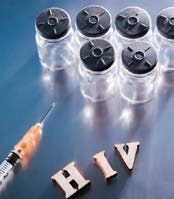Research & Development
New insights into HIV vaccine revealed by researchers

Although researchers have previously always struggled to develop an efficient HIV vaccine, the results of a first-in-human clinical trial for a new vaccine appear promising. The new vaccine has been developed using a new design technique, which is being followed by researchers.
The research has been published in Science, after being undertaken by researchers at Scripps Research, IAVI, Fred Hutchinson Cancer Center (Fred Hutch), National Institutes of Health, National Institute of Allergy and Infectious Diseases (NIAID) and Vaccine Research Center (VCR). The research shows new insights into the novel vaccine strategy, including its approach to how it will produce antibodies to target various HIV variants.
The phase 1 trial, IAVI G001, assessed the safety and efficacy of the vaccine. This trial proved that the vaccine had a positive safety profile, as well as triggering the targeted response in 97% of vaccinated patients.
William Schief, PhD, co-senior author, professor and immunologist at Scripps Research and executive director of vaccine design at IAVI’s Neutralizing Antibody Center, commented: “The data we are publishing in Science demonstrates for the first time that one can design a vaccine that elicits made-to-order antibodies in humans. We specified in advance certain molecular properties of the antibodies that we wanted to elicit, and the results of this trial show that our vaccine antigen consistently induced precisely those types of antibodies. […] We believe that this vaccine design strategy will be essential to make an HIV vaccine and may help the field create vaccines for other difficult pathogens.”